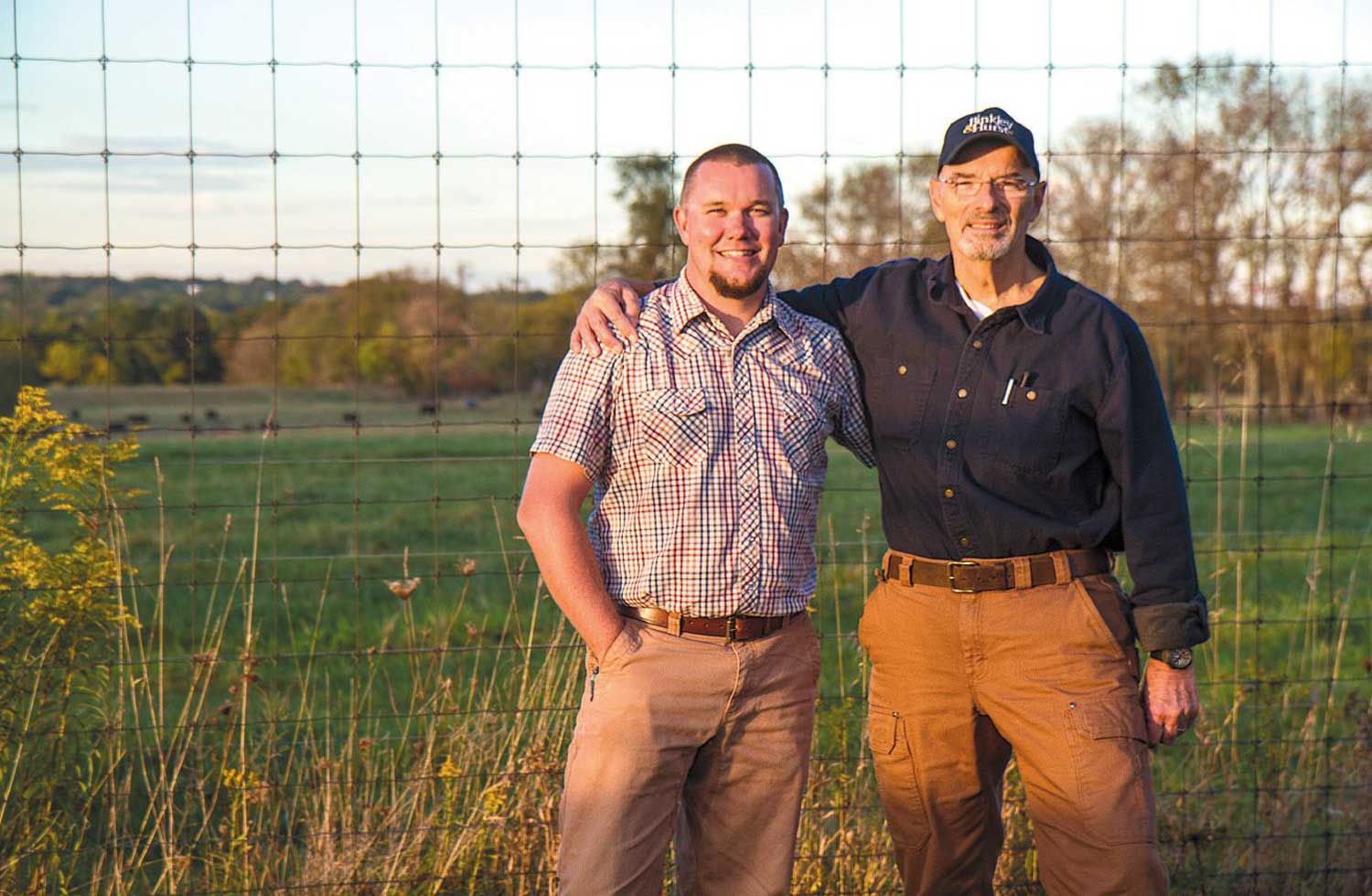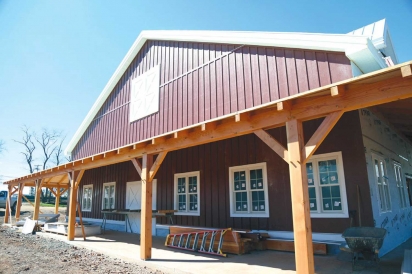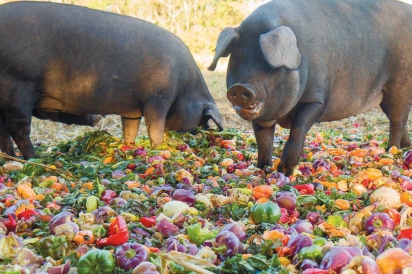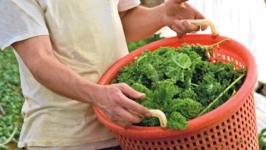Roadside Farm Stand, Revisited at Profeta Farms
Profeta Farms does organic in a big way
There’s something very endearingly New Jersey about the location of Profeta Farms in Readington. Its 370 acres are contiguous, which is kind of miraculous given its location on Route 202, across the street from a Wawa and right next to a subdivision. There’s an enormous barn looming on the horizon that operates as a massive farm stand-meets-food-hall. Profeta Farms is hard to miss, its acreage notwithstanding. Take your romanticized concept of the family-farm roadside stand and explode it to about 25,000 square feet. While you’re at it, make it certified organic, too.
John Place, Profeta’s general manager, notes that 4,400 cars pass the farm every day. Place, who is partnered with Paul Profeta and Joanne Malino, banks on people stopping by on their way home from work to pick up whatever they need, whether it’s fresh seasonal veggies or a dozen eggs and some bacon for the next morning’s breakfast. They even offer dinner to go.
Yes, you can stop at a farm on your way home to pick up dinner.
At the time of writing, the big barn was still under construction; a smaller farmstand is open for business. The farmstand/food hall is being built of Douglas fir wood by an Amish team from Lancaster County, and Place hopes to have it fully operational by August. The goal? “We want to grow the highest quality, healthiest food that we can,” says Place, who has a bit of experience in this area: Not only does he manage Profeta, he runs his own Keepsake Farm, a grass-fed, raw-milk dairy farm in Nazareth, Pennsylvania.
Profeta Farms offers organic produce, chicken, pork, beef and eggs in its butcher shop, but also makes lots of value-added products such as jams, sauces, pickles and prepared foods in its thousand-square-foot production kitchen. They also offer flatbreads, coffee and a from-scratch bakery, along with housemade and seasonal specialties. The new spaces will continue to carry local and regional food items from other producers as well. The food operation is overseen by Chef Lee Chizmar, who, along with his wife Erin Shea, runs Mister Lee’s Noodles at Easton Public Market and Bolete restaurant in Bethlehem, both in Pennsylvania.
Plans for a dairy are in the works, too, possibly by year’s end, along with a restaurant serving breakfast, lunch and dinner. “Do you know of any restaurant in the state of New Jersey that’s completely organic?” asks Profeta. Even the most ardent farm-to-table restaurant has a tough time supplying entirely organic or chemical-free food, local or not. It’s not easy to pull off. In the meantime, the farmstand’s dairy products come from other certified organic dairy farms. Profeta operates a brand-new food truck, too.
“We’re as close to a one-stop shop as you’re going to find, but you’re not going to find organic toilet paper here,” says Place, laughing.
Why Go So Big?
“We are in the midst of a real health crisis in this country,” says Profeta, who credits his daughter Kristine Gedroic, an integrative physician, and his wife, Joanne Malino, a certified integrative nutritionist, with his awakening. “I sort of slid into this organic food movement.” As he began to read more, he became somewhat taken aback by the way our government permits the industrial food supply to operate. “It’s not only not nutritious, it’s poisonous,” he says. As a result, Profeta Farms has become “like a religious mission.”
“We believe strongly that this is how Americans should feed themselves, with regional organic food hubs within driving distance of their homes, “he says. The farm’s various holdings include the aforementioned 370 acres, plus another thousand or so from land they lease in New Jersey and three farms in Nazareth, near Keepsake, that are in the process of becoming certified organic.
In order to remain viable, farms are responding to changing consumer habits, which are increasingly dictated by the constraints of time. It’s become more difficult to get folks to buy right from the farm—even though that’s often the most cost-effective method for the farmer. So the team decided to become stewards of the land in an outsized way and create a legitimate destination where people could buy their food, talk to farmers and learn how it all works. Education is a key component. “If people want better food, we have to figure out ways to compete,” Place says.
Why Organic?
Profit, a real-estate investor and developer based in West Orange, bought the land in the 1980s, and it operated as an equestrian farm for many years. He later leased it to a farmer who worked the land conventionally. However, about ten years ago, Profit instructed the farmer to stop using pesticides, thus beginning the transition to organic.
In this day an age, many farmers opt out of pursuing organic certification. It’s expensive and time-consuming, and many ardently believe the regulations don’t go far enough. Some also argue that the rules don’t sufficiently address animal welfare standards. But for a farm of Profeta’s size and ambition, operating as a certified organic farm makes a lot of sense. It provides a starting point for conversation and peace of mind for consumers. “It lets people know we’ve been checked,” says Place.
Place says that most of their customers understand that if something is grown organically, no pesticides or harmful chemicals are involved, but people still ask if the farm uses GMOs, not understanding that GMOs aren’t permitted in organic methods. The farm aims higher than the standard—beyond organic.
“Organic certification is a process certification, not a product certification,” he says. “It tells you what you can’t do, but there’s a lot it doesn’t address.” One of those things is soil quality. “Our aim is to grow nutrient-dense, healthy food, and we are testing our soils all the time,” he says. The farm composts, reduces tillage and plants cover crops to help replenish the soil’s nutrients.
Soil considerations play a crucial role in growing healthy food, but in order to meet the demands of a large population, Profeta Farms is experimenting with a system that doesn’t use soil. They’ve invested in two greenhouses with vertical growing systems called Zip Farms. They’re not hydroponic—which means there’s no soil and the root systems are misted—but the soil plugs nestle in recycled plastic. The plants are watered from above.
These systems offer a controlled growing climate, which (ideally) results in a more consistently reliable yield and a faster turnaround. Look for kale, lettuce, and lots of herbs grown this way. “Each greenhouse can produce 6,000 heads of lettuce,” he says.
With this controlled climate, the concept of what local and seasonal eating looks like gets shaken up a bit. “We even want to do ever-bearing strawberries in here,” he says, referring to a varietal that does what its namesake promises. In a traditional growing season, ever-bearing strawberries can fruit from May or June through September or October, depending on the conditions. But in a greenhouse?
“Hey, I love seasonality. I personally don’t eat tomatoes unless it’s July or August. But you can only change a person’s shopping habits so much,” Place says. “We’re Americans. We want it now and we want it fast,” he says, laughing. It begs the question: If you can get organic strawberries grown locally in March that taste delicious, is that a terrible thing? “Every decision I make, I ask, ‘Will this produce food that is the best quality?’”
Farming is not exactly the most reliable investment, so it’s unusual for a farm to possess the resources required for such an ambitious, likely multimillion-dollar endeavor. Place imagines the farm will employ close to 100 people by summer, split between the store and the farm. This will be exponentially more challenging for Place, with more variables in place and a bigger staff to manage, and it represents a different level of investment for Profeta, who’s completely new to this kind of farming. But the two of them seem to relish it and have other intrinsic resources, such as plenty of passion and ample capital, to propel it forward.
“To be able to do it on such a bigger scale that can make a difference, it’s fun,” says Place.
“It really is a quantum leap. We want to make spectacular-tasting organic food,” says Profeta.
PROFETA FARMS
803 Route 202, Flemington
908.237.1301








